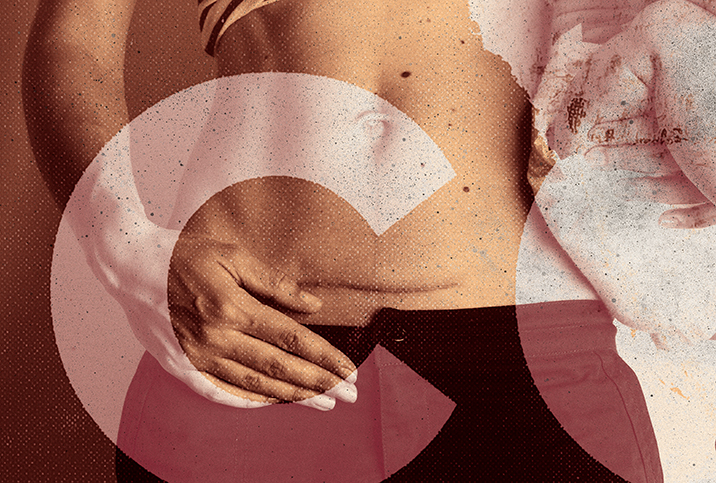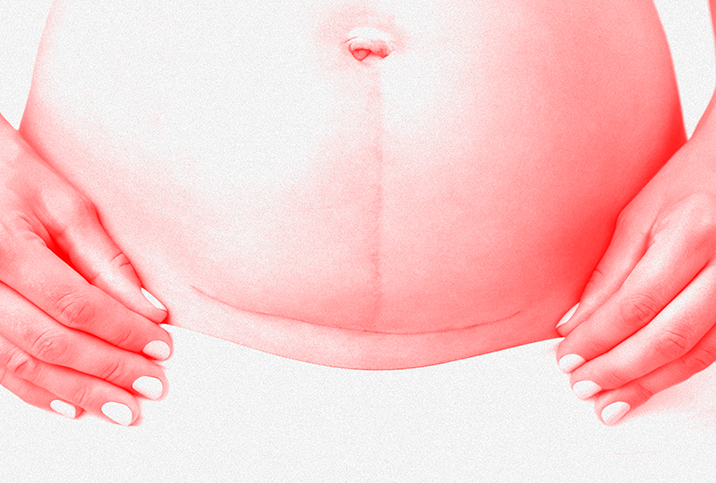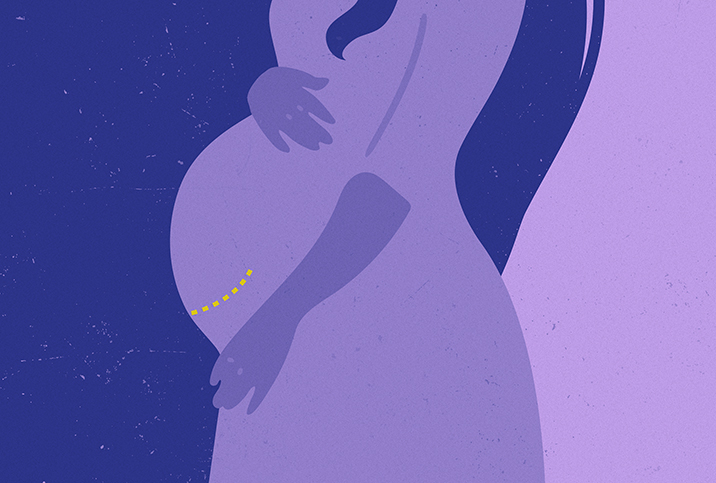Taking Care of Your Partner After a C-Section

Nearly one-third of babies born in the United States arrive via cesarean section (C-section). Sometimes, those C-sections are planned months in advance. In other situations, the C-sections are emergency surgeries to save the life of the mother, the baby or both.
Regardless of specifics, a C-section is always major abdominal surgery. Mothers need time to recover. How long does recovery take? What is the best way to help your partner as she heals after a C-section?
C-section recovery timeline
First things first: Everyone's recovery is a little bit different. Most women can expect physical healing to take six to eight weeks, according to Kiarra King, M.D., an OB-GYN in the Chicago area.
"A C-section is a major surgery," she said. "While they are generally associated with a celebratory life event, they involve recovery, just as any other major surgery would."
In other words, your partner should be gentle with her body for several weeks, which is no easy task when there's also a new baby to tend to day and night.
If the C-section wasn't planned, your partner might also have a steeper emotional recovery. She might be disappointed that her delivery didn't go as expected. She might struggle with frustration and anxiety over her temporary physical limitations.
Your partner might also experience the "baby blues," a hormonal-related sadness that King said can last up to two weeks after delivery, regardless of the mode of delivery. Sadness that intensifies or goes beyond those two weeks could indicate postpartum depression.
Whether your partner bounces back quickly or takes several months to heal, King said it's vital for you to stay aware of your partner's physical and emotional condition and be ready to seek appropriate support or professional help if needed.
Do's and don'ts during recovery
The average hospital stay after a C-section is two or three days, but internal and external physical healing will continue for weeks at home.
Your partner just had major abdominal surgery, explained Monte Swarup, M.D., an OB-GYN in the Phoenix area and the founder of Vaginal Health Hub. A doctor had to cut through their skin, fat and uterus to remove the baby. The mother needs to take it easy as their body heals.
In most cases, a woman recovering from a C-section can independently bathe, walk and lift their baby, King said. However, she tells her patients to avoid driving for two weeks. The recommendation is meant to minimize the chance of disturbing the incision site during an abrupt stop.
During the recovery time, your partner should also avoid sex, vigorous exercise, and lifting large or heavy loads, according to Swarup.
"It's important to remember that a C-section is stressful to your body, and taking the necessary time to heal is essential," he said.
When in doubt about the safety of an activity, consult a medical professional. Your partner should also receive individualized aftercare instructions from their doctor.
How you can help
"A supportive partner can make a huge impact in a mom's postpartum journey," King said. "Helping to lighten the load in any way possible can make the difference between an overburdened mom and one who has some fuel left in the tank."
As for the best way to support your partner's recovery? Start by asking her what she needs. The answer will likely be something practical rather than warm and fuzzy—even if that's not what she'd typically want from you.
"While flowers and gifts are a lovely gesture, they don't replace acts of service that may be more impactful at this stage," King said. "No mom wants a counter full of flowers while feeling like the home won't function if she isn't operating at full capacity."
You should ask your partner what she wants and needs during postpartum recovery, but King and Swarup offered a few general suggestions:
Communicate, communicate, communicate
Caring for a new baby is exciting and exhausting. Emotions run high.
Now imagine also recovering from surgery and dealing with sudden hormonal mood swings. Keeping communication channels open—asking your partner how she's doing and sharing your thoughts and feelings—can help you navigate this season together.
Take over the lifting
So many daily tasks require physical lifting: laundry, grocery shopping and sometimes cooking or cleaning. Do your best to take over these tasks during your partner's C-section recovery—and afterward. Caring for little ones means more work, and the more partners work together, the better off they will be.
Help her get some alone time
Newborns are needy. They require constant attention, which puts a strain on sleep and self-care. Breastfeeding mothers recovering from a C-section can feel incredibly overworked and exhausted.
King suggested carving out regular alone time for your partner to take a nap or a shower, read or do whatever she needs to do to feel like herself again. Even an hour or two of uninterrupted time can make a big difference in a tired mom's psyche.
Be patient
Even without a C-section, postpartum recovery takes time. Your partner is going through a significant recovery and transition, but this too shall pass. There are many ways to practice patience and kindness in this period.
Express gratitude for all your partner does while she recovers. Make a point to show physical affection even though sex is on hold. Checking in with each other at the end of each day can strengthen your relationship as partners and parents.


















